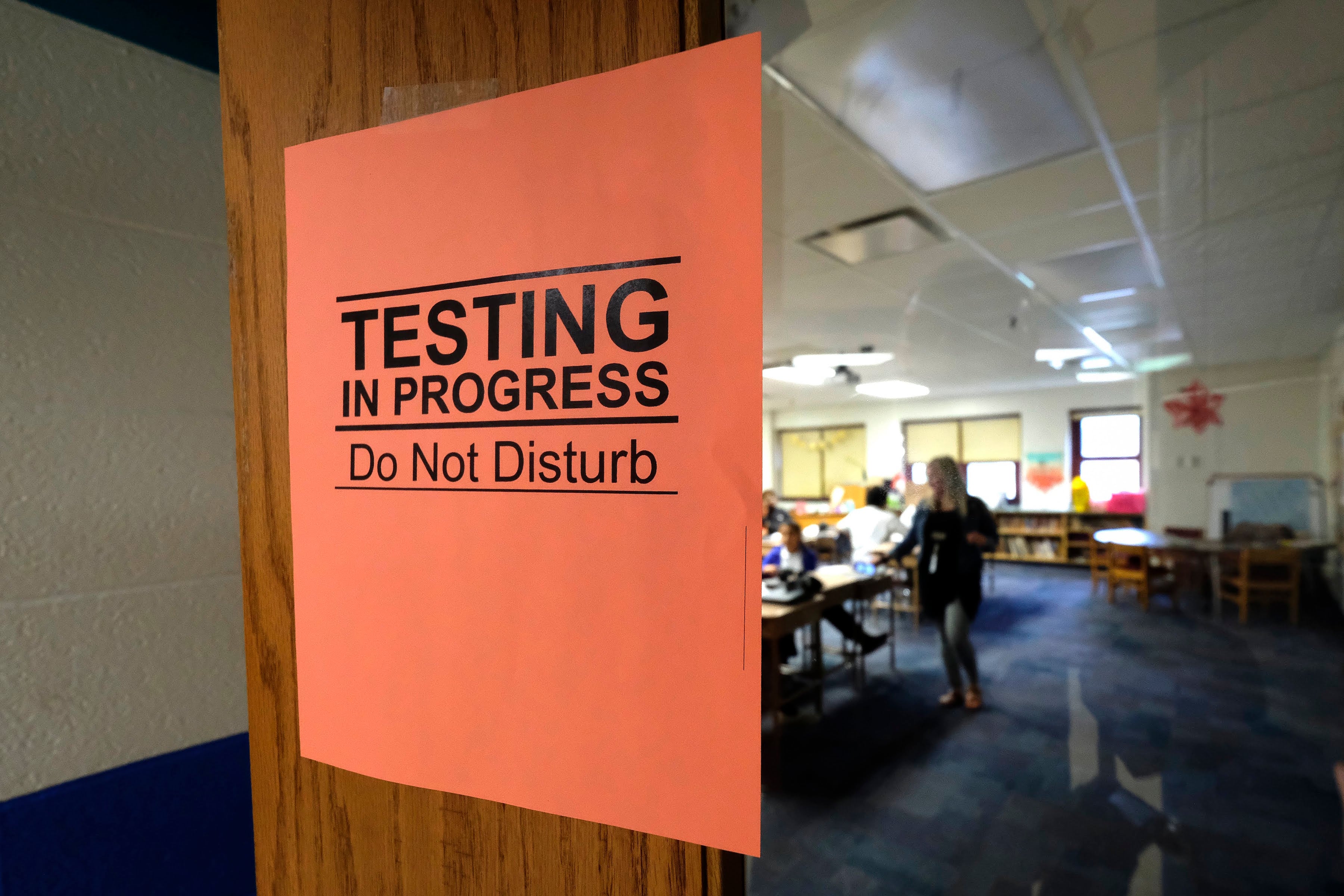Gov. Eric Holcomb and Indiana Republican education leaders support protecting schools from repercussions from declining test scores. But they are committed to requiring schools to administer standardized exams this spring.
The Republican backing for testing comes despite the turmoil caused by the pandemic and calls for increased flexibility from the state’s largest teachers union and Indiana’s outgoing schools chief.
Many districts have spent weeks or months teaching remotely, and thousands of students are signed up for entirely virtual instruction, creating logistical challenges in administering assessments.
As a result, some advocates argue that the federal government should offer states greater flexibility or even allow them to skip tests for a second year — after suspending them last year. That decision will rest with Joe Biden’s administration. Indiana is poised to push forward with testing regardless of the federal decision, but it could join other states in eliminating the consequences for low scores.
If Indiana lawmakers approve a hold-harmless measure, low student test scores would not affect teacher evaluations and would not be used to calculate letter grades for schools. Low grades, which are often based largely on test scores, can trigger state intervention.
Holcomb “believes assessments are a tool for gauging the impact the pandemic has had on students’ learning,” spokeswoman Rachel Hoffmeyer said in a statement.
“He recognizes the unprecedented strain the pandemic has had on our schools and supports accountability hold harmless to prevent unfair consequences,” Hoffmeyer added. “The primary goal is to gather information to best support schools, educators, and students.”
Lawmakers in both chambers echoed Holcomb’s view. Senate education leader Jeff Raatz said that administering ILEARN, the state’s annual test, is crucial to gather data to compare against future results. Other tests mandated by the state, such as the third-grade reading exam, provide valuable information for teachers and schools, he added.
“If nothing else, we have to set a baseline,” said Raatz, noting the state only has one year of data from ILEARN, which was first administered in 2019. “Somewhere along the way we’ve got to begin to move forward.”
Republican Rep. Bob Behning, who leads the House Education Committee, said he would support delaying exams until later in the spring, when vaccinations have helped check the spread of the virus. But testing students is essential.
“We need to know so we have some idea as to where our kids are and ... how great the learning loss problems are,” Behning said. “It is more imperative today than it was last year.”
In a sign of her split from Republican leaders, state schools Superintendent Jennifer McCormick urged lawmakers to consider allowing districts to skip state tests. Her recommendation comes as one of her final acts as Indiana’s top education official. In a Dec. 22 letter to Holcomb and leaders of both chambers, McCormick also called for lawmakers to enact a hold-harmless provision.
McCormick also informed lawmakers in the letter that she had asked the federal Department of Education to allow Indiana to skip federal grades and to not have to identify struggling schools this year.
Protecting schools from consequences for declining results has gained traction among other leaders. Raatz said that he planned to propose a provision to prevent low test scores from impacting schools and teachers. Behning suggested the state go a step further, permanently removing consequences from accountability grades.
Twice in the past five years, Indiana has passed laws to protect schools whose state letter grades have fallen, first when the state introduced new standards and again when it rolled out a new test.
But laws designed to protect schools and teachers from declines in test results have also distorted the state’s grading system. For the 2019-20 school year, for example, some Indiana schools received A-F grades based on test results from 2018.
Accountability advocates argue that those practices render letter grades, which are designed to be easy for parents and communities to understand, all but useless. Behning said he supports something like null grades for all Indiana schools during the coronavirus, instead of giving schools static grades based on old test results.
“I want to stop this madness,” he said.








